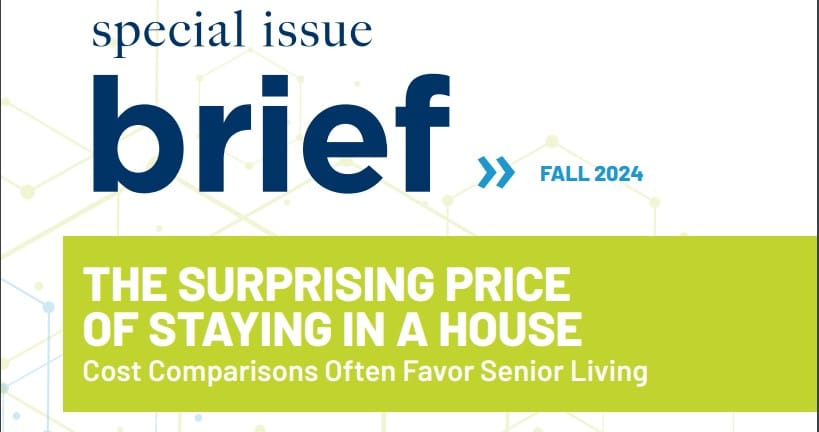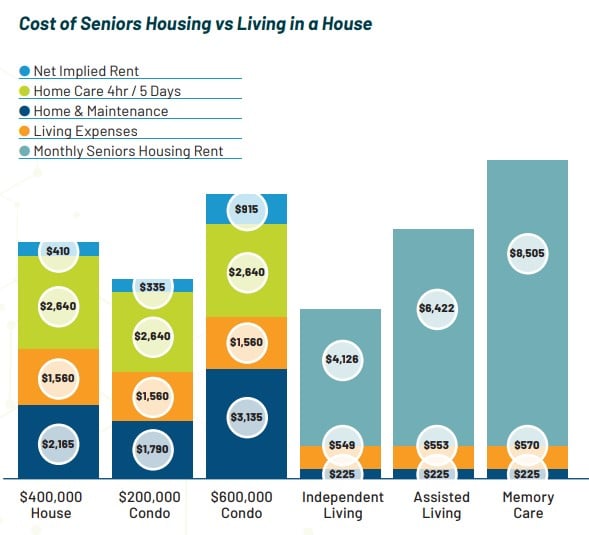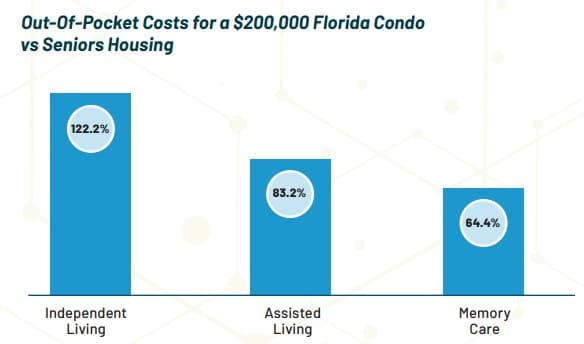Guide to Calculating Assisted Living Facilities Cost
Guide to Calculating Assisted Living Facilities Cost
When it comes to understanding the costs associated with Westmont Living assisted living facilities, a methodical approach is key. By breaking down each component of the expenses involved, you can gain a clearer picture of what to expect.
From base fees to additional care services and amenities, every detail plays a role in the overall calculation. As you navigate through the intricacies of determining these costs at Westmont Living, you’ll uncover insights that can help you make informed decisions about your or your loved one’s future care.
Key Takeaways
- Evaluate base fees covering room, meals, utilities, and care levels.
- Consider additional care services like medication management.
- Review amenities and features offered by the facility.
- Understand medication management costs and related services.
- Factor in transportation expenses for residents.
Understanding Monthly Base Fees
When considering the cost of assisted living facilities, it’s vital to understand the concept of monthly base fees. The base fee breakdown typically covers basic services such as room rental, meals, housekeeping, and utilities. These fees are the foundation of your monthly cost analysis and vary depending on the facility’s location, amenities, and level of care provided.
To have a clear understanding of what’s included in the base fee, it’s important to ask for a detailed breakdown from the facility. This breakdown will help you assess whether the services offered align with your needs and expectations.
Keep in mind that while some facilities have all-inclusive base fees, others may charge additional fees for specific services or levels of care.
Factoring in Additional Care Services
To accurately assess the total cost of residing in an assisted living facility, it becomes vital to factor in additional care services beyond the basic amenities covered by the monthly base fees. Care coordination plays a key role in ensuring that residents receive the appropriate level of support tailored to their individual needs.
Additional services such as medication management, assistance with activities of daily living, and specialized therapies can greatly impact the overall expenses. When considering the cost of additional care services, it’s important to discuss with the facility staff to understand the specific offerings available and their associated costs.
Care coordination services may involve collaborating with healthcare providers, scheduling appointments, and ensuring that residents receive thorough care. Assisted living facilities are known for providing a variety of engaging activities and personalized care Exploring Dining: Menus For Assisted Living Facilities.
Exploring Amenities and Features
As you navigate the process of choosing an assisted living facility, understanding the key amenities available is essential. From dining options to recreational activities, each facility offers a unique set of features that cater to different preferences and needs. By comparing the service offerings, you can find a facility that aligns with your lifestyle and provides the necessary care and comfort.
Luxury Living Senior Residence, for example, offers luxurious amenities and gourmet dining, setting it apart in terms of upscale living experience luxurious amenities, and gourmet dining.
Key Amenities Overview
Exploring the assisted living facilities costs can be overwhelming, especially when examining the range of amenities and features available. When evaluating potential residences, it’s important to look for those that offer a variety of dining choices to cater to different tastes and dietary needs.
Additionally, recreational activities play a crucial role in promoting social engagement and overall well-being.
Wellness programs are another key aspect to take into account, as they can enhance residents’ physical health and mental sharpness. From fitness classes to health screenings, these programs are designed to support a healthy lifestyle.
Moreover, social events provide opportunities for residents to connect, fostering a sense of community and belonging.
As you navigate through the many assisted living facilities, prioritize those that offer extensive dining options, engaging recreational activities, enriching wellness programs, and vibrant social gatherings. These amenities not only contribute to a fulfilling living experience but also promote a supportive and enriching environment for residents.
Facility Features Breakdown
Exploring through the array of assisted living facilities, it’s vital to thoroughly examine the various facility features that contribute to a comfortable and engaging living environment. When considering room options, pricing can vary based on the size and layout of the living spaces. Some facilities offer private rooms, while others provide shared accommodations at different price points to suit varying budgets.
Meal plans and dining options are fundamental aspects to evaluate. Look for facilities that offer diverse menus and accommodate special dietary needs. Some places may provide restaurant-style dining, while others offer buffet or family-style meals. Understanding the meal plans available and the flexibility in dining options can greatly impact the overall living experience.
Comparing Service Offerings
When evaluating assisted living facilities, it is important to compare service offerings, focusing on amenities and features that cater to residents’ needs and preferences. Service comparison involves looking at the various services provided by each facility to determine which one aligns best with the individual requirements of the resident. Service evaluation includes appraising the quality, range, and customization options available to guarantee a comfortable and fulfilling living experience.
| Service Offerings | Description |
| Dining Options | Varied menus, dietary accommodations, meal schedules |
| Recreational Activities | Exercise programs, social events, outings |
| Healthcare Services | Medication management, on-site medical staff, emergency response |
| Accommodation Features | Room sizes, personalization options, safety features |
Evaluating Medication Management Costs
When evaluating assisted living facilities, understanding the costs associated with medication management is vital. A thorough expense breakdown and cost analysis of medication management services, such as medication reminders and coordination with healthcare providers, can help you make an informed decision.
Medication management costs typically cover services like medication tracking and assistance with administration to guarantee residents receive the correct medications at the right time, promoting their health and well-being.
The expense breakdown may include costs for medication storage, staff training, medication administration records, and pharmacist consultations.
It’s important to inquire about any additional fees or specialized services related to medication management to fully comprehend the total cost.
Considering Transportation Expenses
Considering transportation expenses is a crucial aspect of evaluating assisted living facilities. When appraising options, look for facilities with convenient transportation services or those situated near public transportation hubs for easy accessibility. Some facilities offer shuttle services for residents to attend appointments, run errands, or participate in outings, enhancing their quality of life.
To save on transportation costs, inquire about group transportation options or carpooling with other residents going to similar locations. Additionally, check if the facility provides transportation for medical appointments or shopping trips as part of their services, potentially reducing individual expenses.
Exploring alternatives like ride-sharing services or volunteer programs can also be cost-effective solutions for residents needing to travel outside the facility. By considering these transportation options and cost-saving strategies, you can ensure that residents have the means to maintain their independence and stay connected with the community while residing in an assisted living facility.
Budgeting for Personal Care Supplies
When budgeting for personal care supplies in an assisted living facility, it’s important to take into account supply cost considerations such as incontinence products, toiletries, and grooming essentials. By creating a budget that accounts for these essentials, you can effectively manage your personal care expenses and make sure you have everything you need on hand.
Managing personal care in a structured and financially conscious manner can help you maintain comfort and independence within the assisted living setting.
Supply Cost Considerations
To effectively manage the budget for personal care supplies in assisted living facilities, it’s vital to carefully consider the costs associated with maintaining a sufficient supply of necessary items.
When budgeting for supply costs, take into account:
- Utility costs for running laundry machines and maintaining cleanliness
- Maintenance fees for equipment used in resident care
Additionally, staffing expenses related to managing and restocking supplies should be factored in, alongside insurance costs to protect against unexpected incidents.
Understanding the intricacies of these supply cost considerations is pivotal in ensuring residents receive the best care possible while staying within budget constraints.
By meticulously tracking and forecasting these expenses, assisted living facilities can maintain a balance between providing quality personal care supplies and managing costs effectively.
Being mindful of these financial aspects not only supports the well-being of residents but also contributes to the overall sustainability and success of the facility.
Budgeting for Essentials
Carefully managing your budget for personal care supplies is vital for the smooth operation of assisted living facilities. When budgeting for essentials like personal care supplies, it’s important to take into account factors such as meal planning and utility costs.
Meal planning plays a significant role in controlling costs, ensuring residents receive nutritious meals while staying within budget constraints. By carefully planning menus based on residents’ dietary needs and preferences, you can minimize waste and optimize resources.
Additionally, utility costs are a crucial aspect to keep in mind when budgeting for personal care supplies. Monitoring and managing water, electricity, and gas expenses can help prevent unexpected spikes in operational costs. Implementing energy-efficient practices and regularly reviewing utility bills can aid in controlling these expenses.
Managing Personal Care
Regularly evaluating and managing the budget for personal care supplies is important in guaranteeing the smooth functioning of assisted living facilities. Care coordination plays a significant role in overseeing the daily activities and ensuring residents receive the personalized care they need. When budgeting for personal care supplies, it’s crucial to take into account the specific needs of each resident and plan accordingly to provide the necessary products for their daily routines.
To effectively manage personal care expenses, start by creating a detailed inventory of required supplies for each resident based on their care plans. Take into consideration factors like the type and quantity of items needed for tasks such as bathing, grooming, and dressing.
Work closely with care providers to understand individual requirements and coordinate supply purchases to align with resident schedules and preferences.
Additionally, monitor supply usage regularly to identify any trends or changes in residents’ needs. By staying proactive and attentive to personal care supply management, you can guarantee that residents receive the support they need to engage in daily activities comfortably and maintain their quality of life within the assisted living facility.
Reviewing Potential Fee Increases
Considering potential fee increases at assisted living facilities is an important aspect of planning for future expenses. Staying informed about fee projections and rate changes can help you anticipate and budget for any potential cost hikes. Keeping an eye on expense trends in assisted living facilities can provide valuable insights into how fees may fluctuate over time. Below is a table to help you understand and track potential fee increases in assisted living facilities:
| Fee Type | Average Current Cost ($) |
| Monthly Rent | $3,500 |
| Meal Plans | $500 |
| Personal Care | $1,000 |
| Medication | $300 |
| Transportation | $200 |
To sum up, calculating the assisted living facilities costs at Westmont Living demands meticulous evaluation of different aspects like base fees, extra care services, amenities, medication management, transportation costs, and personal care supplies. By adhering to this systematic guide and seeking advice from Westmont Living facility personnel, you can precisely evaluate the overall cost of residing in an assisted living facility. Keep yourself updated, inquire when needed, and plan ahead to guarantee a smooth and financially feasible shift to assisted living. For further information, please contact Westmont Living at 858-456-1233.
Frequently Asked Questions
Are There Any Hidden Fees Not Mentioned in the Base Monthly Cost?
Yes, there may be unforeseen charges beyond the base monthly cost in assisted living facilities. It’s essential for budget planning to inquire about additional fees like move-in fees, medication management, or specialized care services.
How Often Do Additional Care Service Fees Change or Increase?
Additional care service fees can fluctuate depending on individual needs and market factors. Rates may adjust annually or more frequently. Stay informed by discussing potential changes with the facility regularly to anticipate any financial adjustments needed.
Can Amenities and Features Be Customized or Added a La Carte?
Yes, amenities and features at assisted living facilities can often be customized or added a la carte to suit your preferences and needs. This allows for a tailored experience that aligns with your specific requirements and desires.
Is Medication Management Cost Inclusive of All Required Medications?
Yes, medication coverage typically includes all required medications as part of the inclusive services. This guarantees that residents receive proper care and support in managing their health needs without additional costs for essential medications.
How Reliable and Flexible Is the Transportation Service Provided?
When considering transportation services in assisted living, it’s important to assess reliability and flexibility. Guarantee the service accommodates residents’ schedules and needs, offering safe and timely transportation options. Reviewing feedback from current residents can provide valuable insights.






















